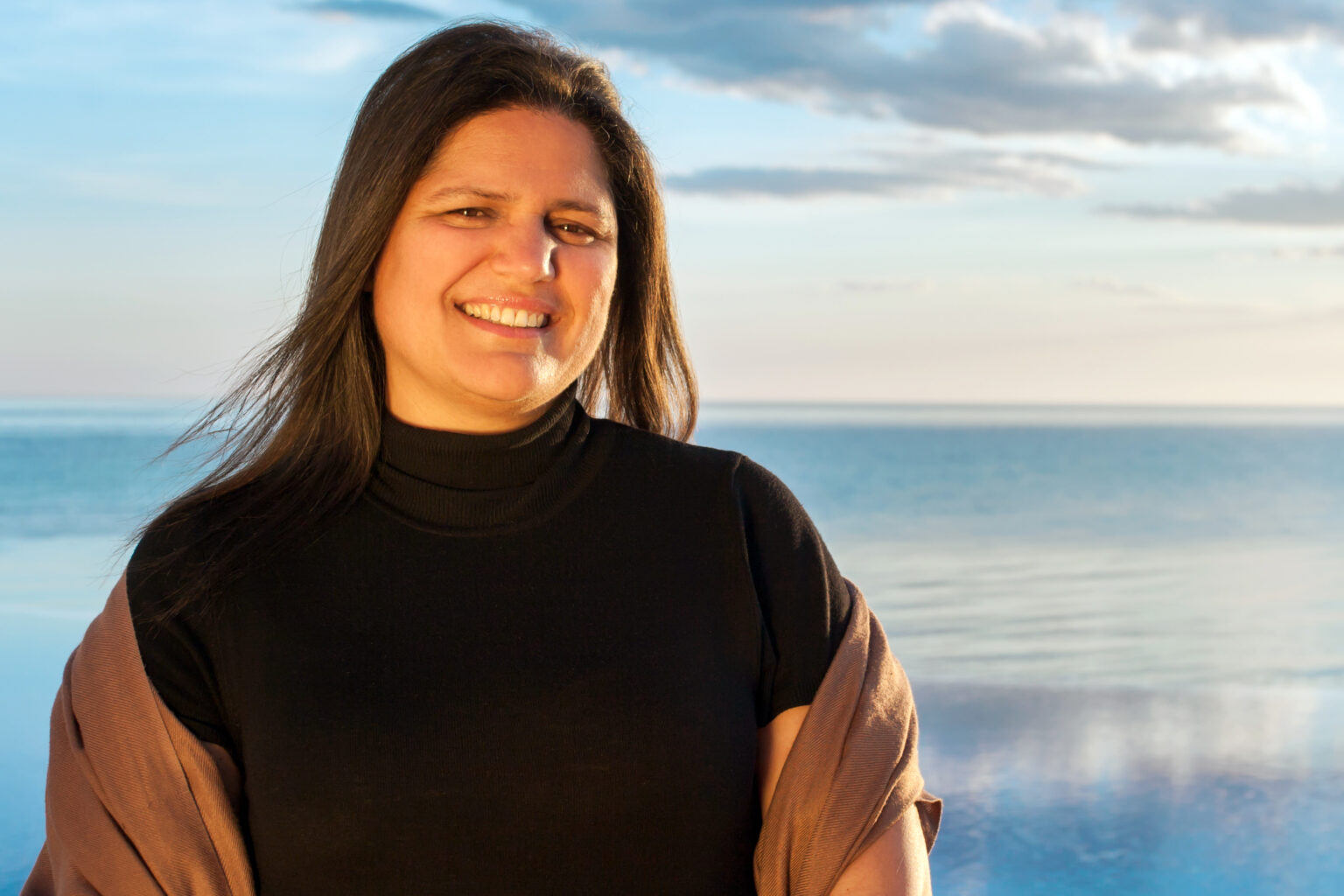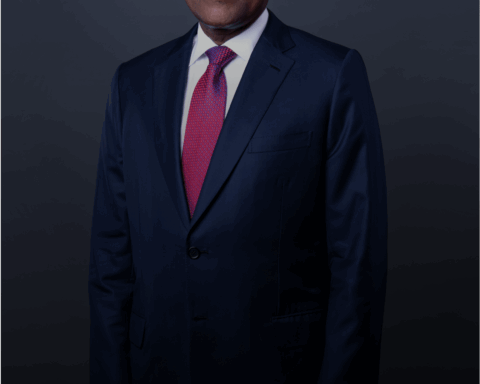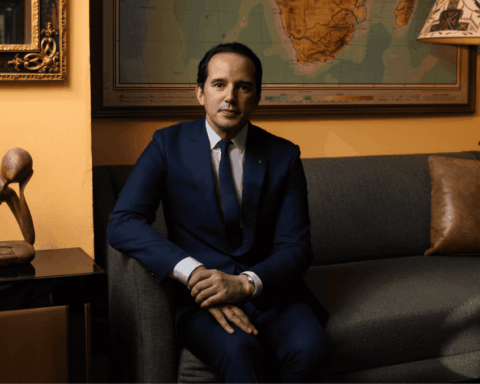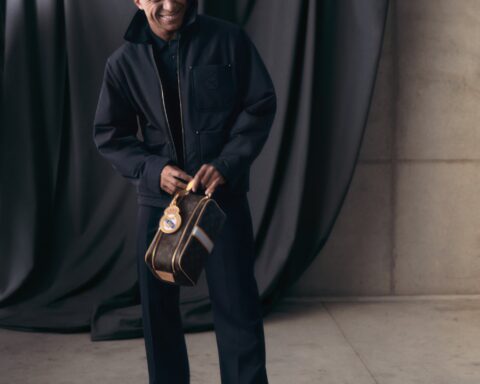Mouna Ben Halima is an iconic figure in the Tunisian hotel industry. Founder and CEO of La Badira, a luxury seaside resort in Hammamet celebrating its 10th anniversary this year, she has achieved a rare feat: her hotel is the only one in Tunisia to be a member of the prestigious Leading Hotels of the World network. But her influence extends far beyond the tourism sector. A long-time community activist, Mouna Ben Halima is actively campaigning for a more open, modern and civic-minded Tunisia.
A committed business leader and active citizen, Mouna Ben Halima embodies a new generation of women leaders in Tunisia. A prominent figure in the Jasmine Revolution, she co-founded the Bus Citoyen, a pioneering initiative that travels across the country’s 22 regions to encourage Tunisians to vote. An active defender of civil society, she campaigns for social, economic, and legal reforms, while warning of the risks of authoritarianism.
Her commitment extends to the non-profit sector: she co-founded Touensa, an organization dedicated to civil rights, civic education, and national dialogue, and chairs the Tunisian committee of Réseau Entreprendre. Elected to the Executive Board of the FTH (Tunisian Hotel Federation) in 2017, she took over as head of the ATUGE (Association of Tunisians from Grandes Écoles) in 2021.
Internationally, she participates in numerous forums on democratic transition and sustainable development, while being recognized for her role in the modernization of the hotel sector.
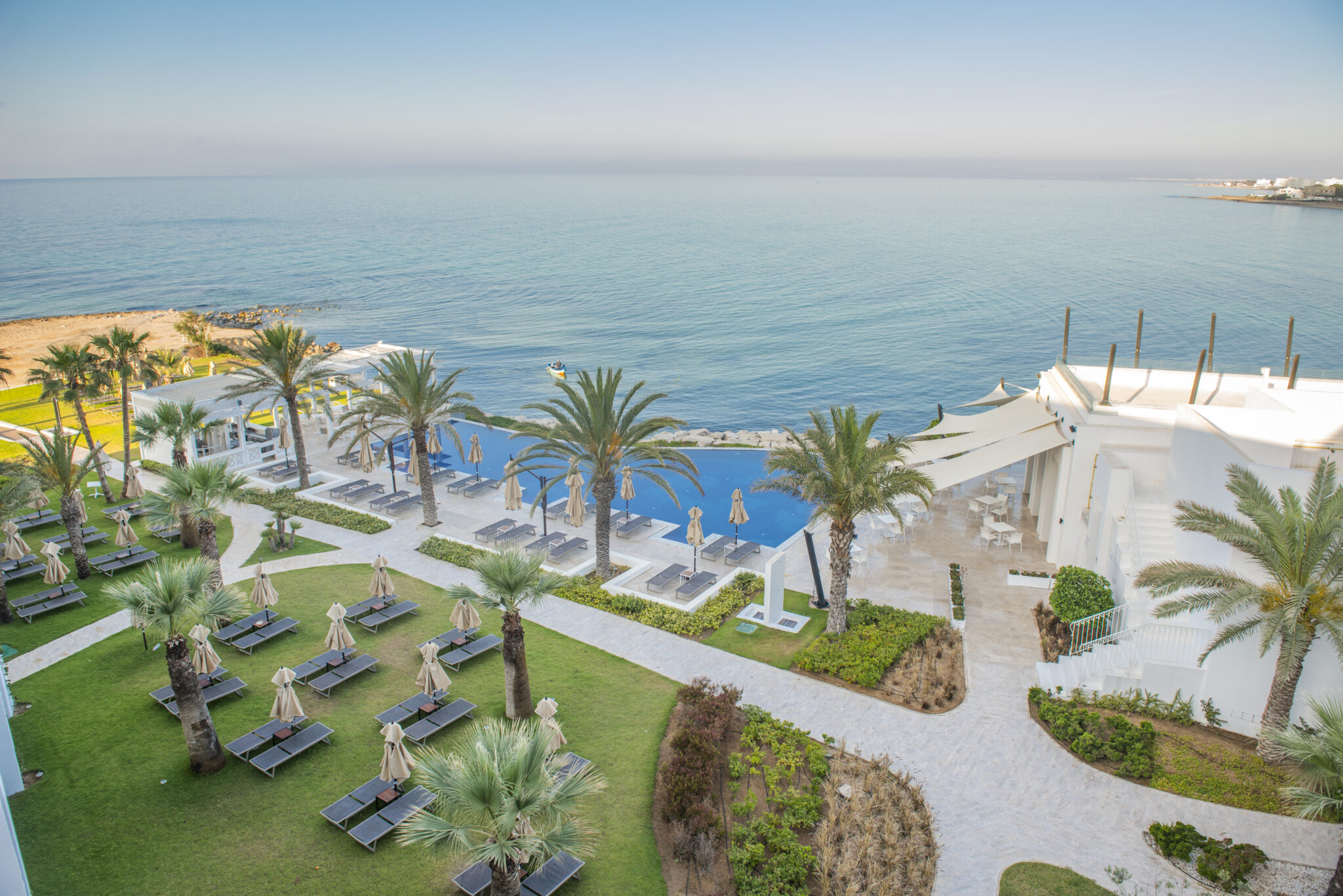
At just 24, she took over the family hotel after her dad passed away. Today, she runs La Badira – “as bright as the full moon” – a high-end hotel an hour from Tunis, which she’s turned into a showcase for local craftsmanship and a place for training excellence. Against all odds, she took a gamble on luxury, far from the standards of the time – vacation clubs, all-inclusive offers, and low-cost tourism. She dreamed of a refined, inspired hotel, resolutely focused on the international high-end market. She almost completely demolished the old building, keeping only the foundations, and surrounded herself with young architects with whom she dialogued and built a new vision. The result? La Badira, a hotel with a contemporary design that is unique in Tunisia, with 130 suites, a 2,500 m² Clarins spa, an outdoor pool, seven bars and restaurants, and a semi-private beach. It has joined the exclusive circle of Leading Hotels of the World, a distinction unique in Tunisia. “Nowadays, tourists are looking for powerful, original and authentic experiences that provide intense emotions. To meet these new expectations and attract today’s travelers, Tunisia must make huge efforts: it must develop new concepts and promote its wealth, attractions, gastronomy, crafts, and culture… Luxury has an essential role to play in this context, by raising the profile of tourism and improving Tunisia’s offering and image,” explains Mouna Ben Halima.
Educated at the Lycée Louis-le-Grand in Paris-Dauphine, with an MBA from the Mediterranean School of Business and a degree from the ENA in Tunis, Mouna Ben Halima combines ambition, strategy, and commitment with a modern and inclusive vision of Tunisia.
Tunisia’s tourism challenges
A popular destination for Europeans, Tunisia attracts visitors with its sunshine, medinas, and hospitality. But behind this picture-postcard image, the country faces major challenges that call into question the future of its tourism industry. Highly focused on the summer season, the current model suffers from strong seasonality. Cool weather in September limits the beach season, weakening employment and slowing investment. Another threat is coastal erosion, exacerbated by rising sea levels and past development. The lack of diversification in the offering—culture, wellness, desert, ecotourism—is hindering more balanced and authentic activity. Beyond tourism, Tunisia is seeing its talent flee: doctors, teachers, and engineers are leaving, attracted by better prospects. The result is a society under strain, caught between social pressure, institutional crisis, and a loss of bearings. Yet the potential is there. By focusing on sustainable, creative, and open tourism, Tunisia can reinvent itself and shine all year round.
INTERVIEW
LUXUS MAGAZINE: La Badira is the only Tunisian hotel to hold the prestigious Leading Hotels of the World label. What makes your establishment so renowned?
Mouna Ben Halima: What makes it famous? I would say, first of all, that it meets the luxury standards of Leading Hotels of the World, and is therefore on a par with other Leading hotels around the world. And since luxury is not necessarily the norm in Tunisia, La Badira stands out all the more in this respect.
Tunisia is more of a mid-range tourist destination, catering to tour operators and families who come on all-inclusive packages, who don’t pay too much attention to details and don’t have luxury budgets. So what makes La Badira famous is probably largely the fact that it stands out from the general tourist offering in Tunisia.
LUXUS MAGAZINE: As a woman, what challenges did you face when you took over the management of the hotel?
Mouna Ben Halima: I think I’ve faced the same challenges as a man. It’s more the context in Tunisia, which has been a bit complex since the revolution. There are problems with the country’s air service. We also face terrible bottlenecks within the Tunisian administration. Companies have to go through a real obstacle course to obtain all the necessary authorizations to carry out their projects.
As a woman, the challenge for me was perhaps being away from home for several years when my children were young. I was lucky to have a husband who made up for my absence and supported me completely in my work. We juggled things when the children were young to maintain family balance, and I think we managed well [Laughs]. Looking back, I can’t even say that I felt guilty, because deep down I was convinced that I had no choice but to devote myself fully to my career. And even if I had some doubts or questions about the little time I was able to devote to them at the time, they were quickly swept away when I realized that, in the end, many children were struggling even though they had their mothers at home—but a mother can be busy or have no plans. Whereas having a working mother seems to me to be a very good example for children. What’s more, even though I had less time to devote to them than a stay-at-home mom, the time I spent with them was quality time. We made it a rule not to have our cell phones with us when we were with our children and not to watch TV during dinner, so that we could really connect during those special moments. So even if we only spent an hour a day together, it was quality time, intense and truly present.
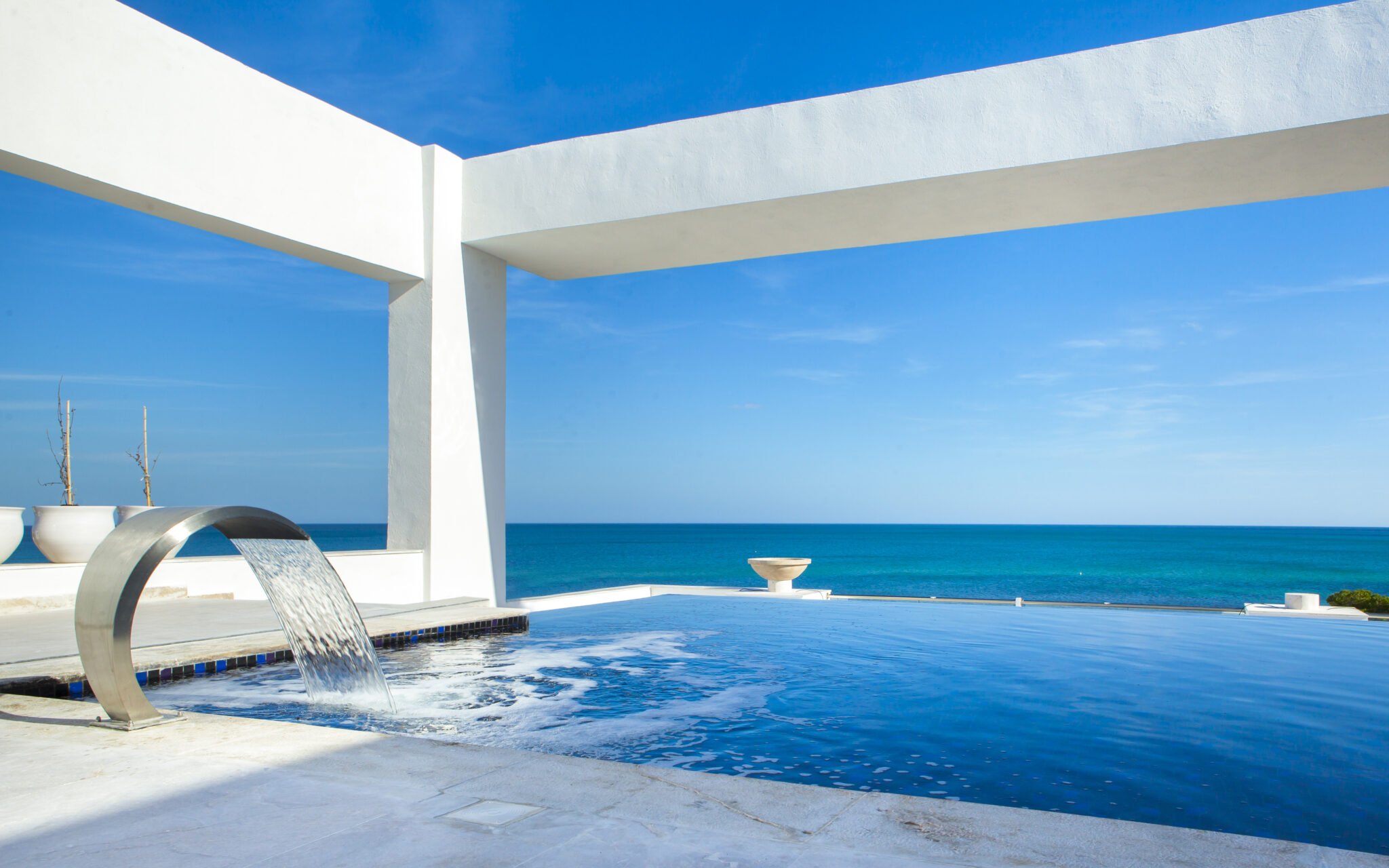
I never felt any difference between men and women, that’s true. I don’t think it was me or my generation who fought for women’s rights: it was my parents’ generation and even my grandparents’ generation. Because as soon as it gained independence in 1956, Tunisia adopted laws that were revolutionary at the time and which, 70 years later, remain surprisingly unique in the Arab world. President Habib Bourguiba (editor’s note: President of the Republic of Tunisia between 1957 and 1987) decided that women had the same rights as men, could file for divorce and receive adequate compensation, and of course had the right to vote, work, etc. As a result, there is no wage discrimination in Tunisia, and abortion is legal. Women have truly been given all the freedom they desire to be entrepreneurs, just like men. Politicians really shook up ancestral traditions at that time. The only inequality that remains concerns inheritance law. When I entered the professional world, the question of equality with men did not even arise. Seventy years later, Tunisia remains the only Muslim country to ban polygamy, which is still permitted in all other Muslim countries around the world. The same is true for divorce: there are many countries where women do not have the right to divorce and find themselves repudiated or subjugated to the man they married.
LUXUS MAGAZINE: What are your country’s main needs in order to promote tourism development?
Mouna Ben Halima: The first need is very pragmatic. It is the issue of inadequate air service, which is a real handicap. Tunisia has a national airline with very few planes and does not have the financial resources to increase its fleet and expand. And there is a great deal of resistance to allowing other airlines to serve the country, as a measure of protectionism in favor of the national airline. So it’s a bit of a vicious circle. Political decision-making is also marred by a great deal of ideological bias: there is no courage to liberalize the market, even if this means penalizing the national airline. Over the past 15 years, no one has had the courage to put the national interest before that of the airline in order to move forward.
LUXUS MAGAZINE: What is hindering the development of tourism in Tunisia?
Mouna Ben Halima: This will probably upset some people, but to be frank, it’s the level of tourism administration. The officials who decide on public policy in tourism are conservative, favor the status quo, lack openness to the world, and don’t travel enough to realize how far our competitors have overtaken us. What’s more, the tourism administration has very few powers and is highly dependent on other administrations (heritage, transport, agriculture, interior, etc.). They are therefore unable to implement a genuine public policy promoting the development of tourism in Tunisia.
They are therefore unable to implement a genuine public policy promoting the development of tourism in Tunisia. They continue to restrict tourism, restaurants, and hotels because they find it difficult to understand—although this is beginning to change very slowly—that the development of a country’s tourism depends first and foremost on promoting its heritage, history, and culture, as well as its landscapes, cuisine, and crafts. They are struggling to move on from the 1980s and 1990s, when tourism development was reduced to building hotels. Tourism needs to be rebuilt, drawing on archaeological sites, the country’s history, the experiences it offers, and its customs, which need to be explained and modernized.
LUXUS MAGAZINE: Known for your stance in favor of democracy and support for civil society, would you consider a career in politics?
Mouna Ben Halima: In my view, playing an active role in civil society is a political commitment in itself. I already consider myself politically engaged, without needing to be in a political party or run for office. That said, the context has changed since 2021: the democratic upturn that Tunisia experienced between 2011 and 2021 has come to an end, probably for the long term. Tunisians are complacent about this return to dictatorship, which they see as a return to order, because they have associated democracy with chaos and excess, which has disoriented them. Today, President Kaïs Saïed has reinstated all restrictions on freedoms, bans, arbitrary arrests, persecution of opponents, and censorship, which is also becoming self-censorship because people see their neighbors being arrested after being denounced. The president enjoys genuine support from the population, which leads me to believe that the democratic interlude has come to a definitive end for the time being. The decline in the general level of education in Tunisia has also made the population more vulnerable and more easily seduced by populist rhetoric—a phenomenon that is affecting other countries as well. Unfortunately, populism goes hand in hand with real restrictions on freedoms, a great deal of injustice and arbitrariness, and a justice system that follows orders. People have been arrested for several months with no evidence against them.
LUXUS MAGAZINE: Do you have any plans to expand or diversify La Badira?
Mouna Ben Halima: For the moment, we have two concrete projects in the pipeline: the first is in the Medina of Tunis, where we have purchased a property, a beautifully preserved 17th-century mansion. We have drawn up plans to convert it into a luxury hotel with 12 rooms—a very high-end boutique hotel. We submitted an application for a building permit to start construction, but it was initially rejected. We therefore resubmitted a revised application six weeks ago, hoping that it will be approved and that construction can finally begin. This is likely to be a particularly long process, as we are working in the narrow streets of the medina, where construction machinery cannot enter and everything is done by hand. The usual deadlines will therefore be easily exceeded! It’s only minor demolition work, but it will take two days to clear everything away with wheelbarrows![Laughter]. We are therefore expecting three years of work before opening, even though it is a small hotel with only 12 rooms.
Our second project is already well underway. We are now working on the finishing touches, the flooring, the furniture, and the light fixtures. This hotel is located in a village in the middle of the forest called AIN-DRAHAM, a fairly popular place in the 1930s and 1950s. The hotel I took over dates back to 1907 and is called the Hôtel des Chênes. The region is known for its cork oak trees. There used to be a factory that made corks for wine bottles. It’s a mountain village that feels like you’re in the Alps. It looks a bit like an alpine chalet, with its sloping roofs and red tiles. It’s located at an altitude of 800 meters, and sometimes it snows in winter. The snow doesn’t last very long in Tunisia [Laughs], but it’s one of the few places where it falls. This establishment has been closed for over 30 years because it was dilapidated and had fallen into disrepair. We are rebuilding it identically to turn it into a five-star hotel, with all the comforts you would expect in the finest hotels in the Alps.
LUXUS MAGAZINE: And will the new hotel have the same name?
Mouna Ben Halima: We will keep Les Chênes, because it is part of the heritage of the AIN-DRAHAM region, where celebrities lived in the 1950s and 1960s. President Bourguiba often went there to relax and go hiking in the forest. We are continuing our research, because we know that many Italians also used to go there, guests of Tunisia whom President Bourguiba invited to the region to show them the thousand and one faces of Tunisia. Many people think that Tunisia is just coastline and beaches, but in reality, there is also the desert and Berber villages. There is a region called the Kroumirie, at the beginning of the Atlas Mountains that stretch across the Maghreb and Kabylie to Morocco, populated by forests and mountains. It is a region rich in history. The full name of the establishment will be Les Chênes by La Badira.
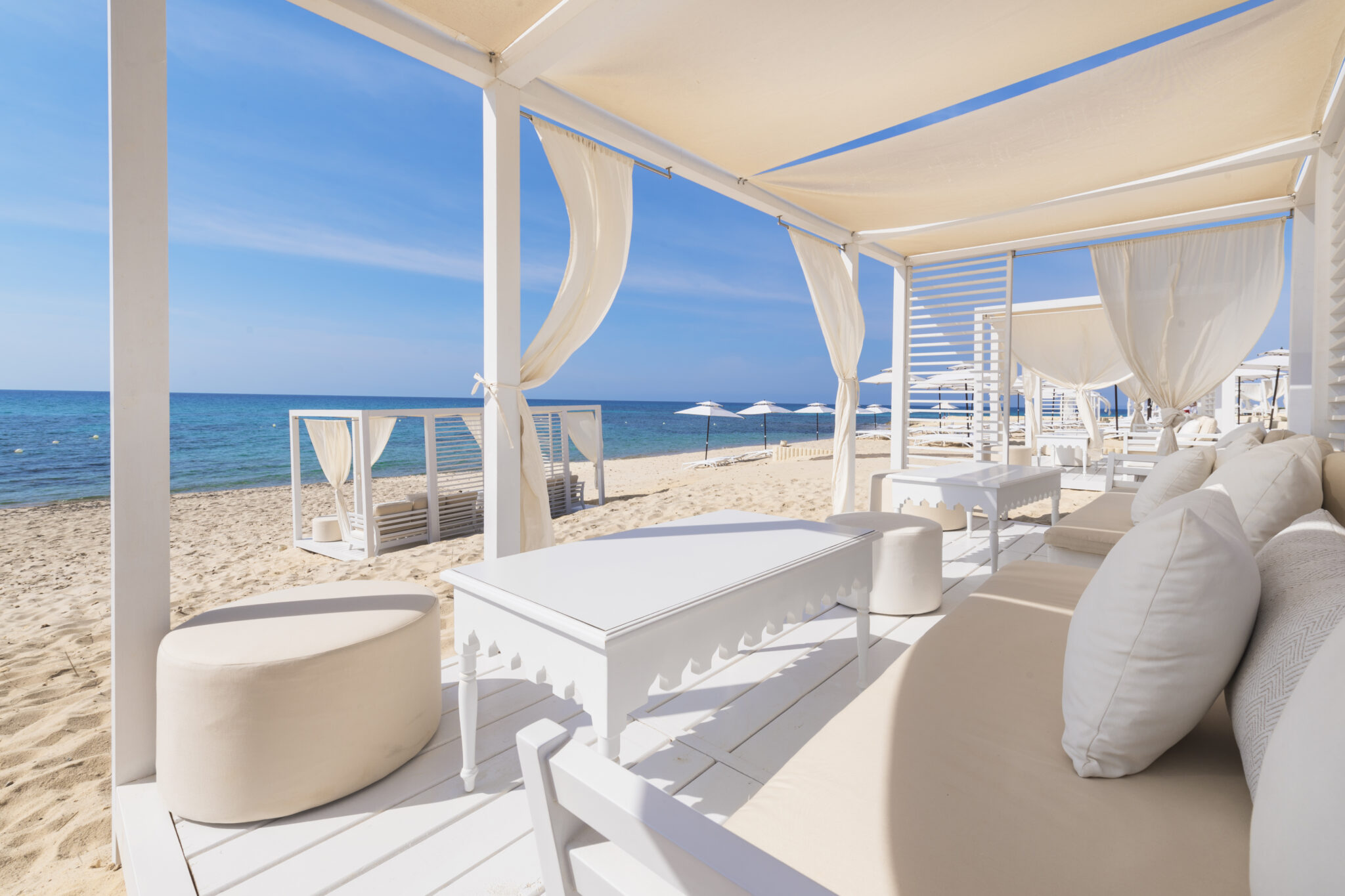
LUXUS MAGAZINE: Before we wrap up, do you have any anecdotes to share?
Mouna Ben Halima: When I first imagined La Badira 10 years ago, I wanted to create a place that exuded tranquility, zen, and serenity. It was a challenge to convey this emotion through furniture, decoration, and material things. However, from the moment we opened, it was a winning bet. Without us doing anything, customers immediately and spontaneously created the hashtag “calm at La Badira.” It instantly created a huge buzz, with everyone wanting to enjoy the “calm at La Badira.” Since La Badira is a luxurious place that inspires dreams, customers wanted to show their friends and family that they were treating themselves to a weekend at La Badira, that they were ‘calm at La Badira’, by posting photos of their toes spread out on the beach or around the pool, for example. As a result, ‘calm at La Badira’ became the buzz phrase of summer 2015 in Tunisia! The phenomenon grew so big that it was featured in One Man Show sketches and by ordinary people, who started taking photos of themselves serving themselves a cup of coffee on their balcony or in their garden and adding the hashtag! It was a fantastic moment for me! [Laughs].
Read also > INTERVIEW – Linda Rama wants to revive the power of democracy
Featured photo: Portrait of Mouna Ben Halima




